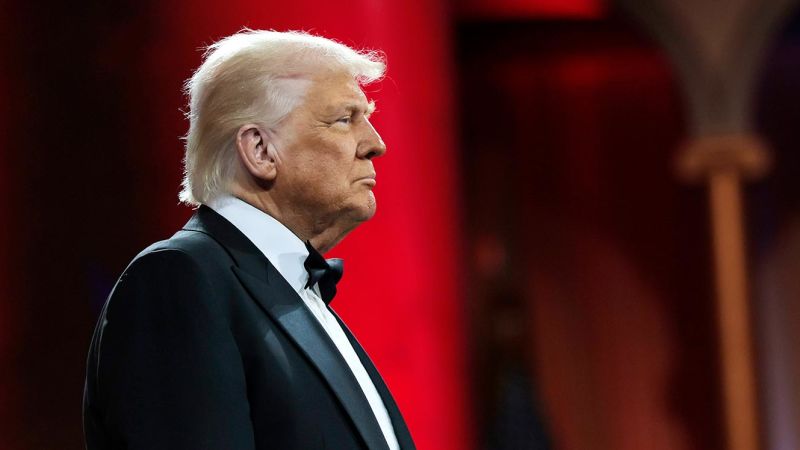On April 22, 2023, former President Donald Trump engaged in a comprehensive interview with TIME, discussing a range of current political topics, including tariffs, foreign relations, and domestic policy. Among the notable issues brought up was Trump’s desire to make Canada the 51st state of the United States, a proposition that has met with resistance from Canadian leadership. Trump expressed his views boldly, asserting, “We don’t need anything from Canada,” suggesting that such a merger could be a solution to various issues.
Throughout the interview, Trump reiterated his stance against utilizing “loopholes” to run for a third presidential term and indicated that he would support legislation prohibiting stock trading by members of Congress. He firmly rejected the notion that he was expanding the power of the presidency, insisting that he was utilizing the office “as it was meant to be used.” Referring to his actions in a past campaign, he stated, “What I’m doing is exactly what I’ve campaigned on.”
Furthermore, Trump continued to advocate for tariffs, defending their efficacy for the American economy despite lacking solid evidence. He claimed to have established approximately “200 deals” during his tenure but did not disclose further details on these agreements. Trump stated that even if the U.S. were to retain a 50% tariff on foreign countries, he would view it as a victory since it would supposedly make the country financially prosperous. The lack of transparency regarding these trade agreements was notable, as Trump asserted that negotiations would conclude within a few weeks yet offered no specifics.
Despite claiming to be actively negotiating with China about tariffs, officials from China contradicted him on this front. Trump hinted at an ongoing dialogue with Chinese President Xi Jinping but was evasive when pressed by CNN on recent communications. He emphasized his willingness to engage with foreign leaders like Xi, though he refrained from providing details regarding any recent conversations.
In matters of immigration, Trump maintained that he had not communicated with El Salvador’s President Nayib Bukele regarding the return of Kilmar Abrego Garcia, an undocumented immigrant mistakenly deported by the U.S. He assigned responsibility for decisions about Garcia’s status to Justice Department lawyers and thus distanced himself from the process. Trump’s overall approach raises questions about the will of his administration concerning immigration compliance, particularly in light of a Supreme Court ruling demanding action.
Trump further explored the idea of territorial expansion, specifically concerning Canada. He indicated that the U.S. “doesn’t need [Canada] to make cars for us” and expressed that military and economic considerations are reasons sufficient for the proposal. This comment highlights Trump’s perspective on international relationships and his often contentious approach to diplomacy.
Moreover, he stated that if given the chance, he would not be opposed to altering the existing framework of U.S. territorial boundaries, hinting at a larger vision for his legacy and positioning that resonates with his base. Publicly, he has also speculated about the potential for a 2028 presidential run, although he emphasized that he has not actively pursued the idea despite a thriving demand from supporters.
On the topic of healthcare, Trump promised to veto any significant Medicaid cuts proposed by Republicans, which he would deem unacceptable unless they targeted “waste, fraud, and abuse.” This assertion aligns with the challenges facing Republican leadership as they navigate the complexities of fiscal policy and healthcare reform.
In the realm of foreign affairs, particularly regarding the conflict between Russia and Ukraine, Trump suggested that “Crimea will stay with Russia,” seemingly dismissing a long-standing policy against recognizing territory acquired by force. His comments required scrutiny as they conflict with international laws and the U.S.’s previous stance on the matter.
In summary, Donald Trump’s interview with TIME provides a wealth of insight into his thoughts on various pressing political issues ranging from tariffs and healthcare to immigration and international relations. His remarks invite controversy and reveal his distinctive approach to governance, which continues to polarize opinions among the public and political analysts alike.



